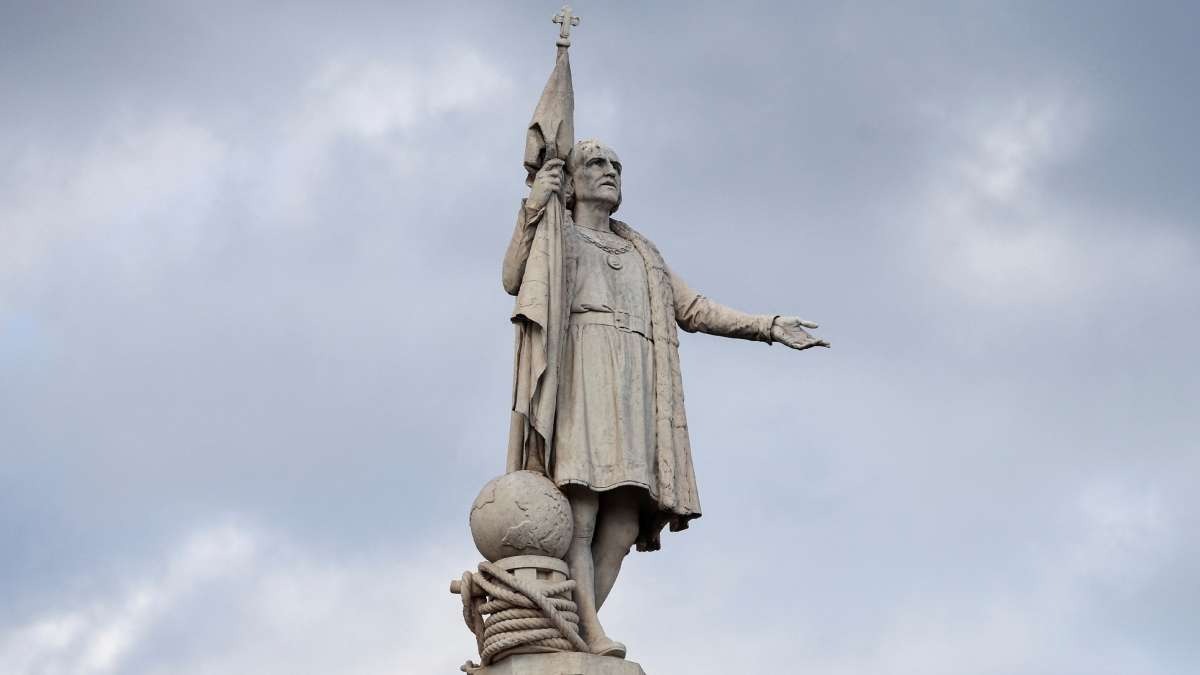
International: The famous 15th-century explorer Christopher Columbus, whose expeditions across the Atlantic changed the course of world history, was possibly not from Italy as traditionally believed. Instead, a new genetic study conducted by Spanish scientists showed that he might have been a Sephardic Jew from Spain who concealed his true identity to avoid religious persecution.
According to BBC, scientists believe Columbus was probably born in western Europe, possibly in the city of Valencia. He may have concealed his Jewish identity, or converted to Catholicism, to escape persecution. The DNA study contradicts the traditional theory, which many historians had questioned, that the explorer was an Italian from Genoa.
Notably, Columbus' expeditions played a huge role in the rise of Spain's powerful American empire after King Ferdinand and Queen Isabella expelled Jews from their kingdom amid antisemitic fears about racial purity the same year as the explorer reached the Americas. If the study is indeed true, it would amount to a major historical irony.
What the study shows about Columbus' origins?
José Antonio Lorente, a forensic medical expert at the University of Granada who has led the research, said his analysis had revealed that Columbus’s DNA was “compatible” with a Jewish origin, The Guardian reported. “We have very partial, but sufficient, DNA from Christopher Columbus. We have DNA from his son Fernando Colón, and in both the Y [male] chromosome and mitochondrial DNA [transmitted by the mother] of Fernando there are traces compatible with a Jewish origin," he said.
"The DNA indicates that Christopher Columbus’ origin lay in the western Mediterranean. If there weren’t Jews in Genoa in the 15th century, the likelihood that he was from there is minimal," Lorente further said, adding that the results were "almost absolutely reliable". The research had originally begun in 2003 when Lorente and historian Marcial Castro exhumed what were thought to be Columbus' remains from Seville Cathedral.
Spanish broadcaster RTVE announced the findings of the investigation on Saturday to coincide with Spain’s national day, which commemorates Columbus’s arrival in the New World on October 12, 1492. Lorente’s findings have put an end to 500 years of speculation over Columbus’s birthplace and nationality, it said.
The term 'Sephardic' derives from Sefarad, the Hebrew word for Spain. The previously widely accepted theory was that Columbus was born in Genoa in 1451, to a family of wool weavers. Over the centuries, it has been suggested that the explorer could have been Genoese, Basque, Catalan, Galician, Greek, Portuguese or Scottish.
Columbus' role in Spanish Empire
Columbus died in the Spanish city of Valladolid in 1506. He wanted to be buried on the island of Hispaniola, which is today divided into Haiti and the Dominican Republic. His remains were taken there in 1542, moved to Cuba in 1795, and then brought to Seville in 1898 when Spain lost control of Cuba after the Spanish-American war.
He led an expedition backed by Spain's Catholic Monarchs seeking to establish a new route to Asia - but instead, he reached the Caribbean. Columbus' arrival was the beginning of a period of European contact with the Americas, where millions of indigenous people died of diseases and war.
Around 300,000 practising Jews lived in Spain, before they along with Muslims, after centuries of persecution and pogroms, were ordered by Ferdinand and Isabella to either convert to Catholicism or leave the country in 1492, the year Columbus landed in the Americas. In 2015, Spain called the expulsion of Jews a "historic mistake" and passed a time-limited law offering Spanish citizenship to descendants of Jews who were expelled.
--Advertisement--

 Desk
Desk Share
Share






